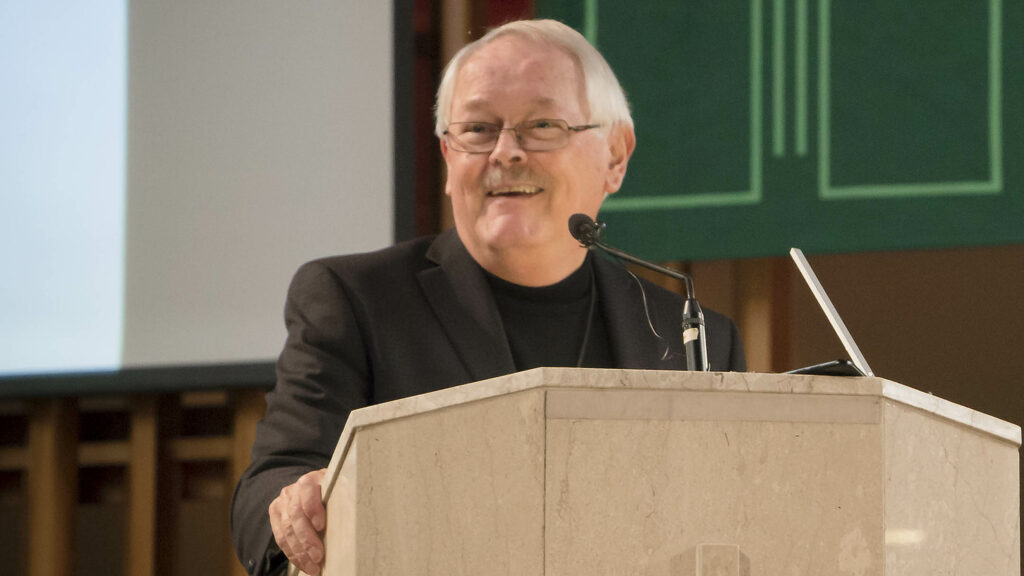Information technology and social media aren’t my mother tongue. I’m a digital immigrant. I wasn’t born into the world of information technology but migrated into it, piece-meal. I first lived in some foreign territories.
I was nine years old before I lived with electricity. I had seen it before; but neither our home, our school, nor our neighbors had electricity. Electricity, when I first saw it, was a huge revelation. And while I grew up with radio, I was fourteen before our family got its first television set. Again, this was a revelation – and manna for my adolescent hunger for connection to the larger world. Electricity and television quickly became a mother tongue, one lit our home and other brought the big world into it. But the phone was still foreign. I was seventeen when I left home and our family had never had a phone.
The phone wasn’t much to master, but it would be a goodly number of years before I mastered much in the brave new world of information technology: Computers, the internet, websites, mobile phones, smart phones, television and movie access through the internet, cloud storage, social media, virtual assistants, and the world of myriad apps. It’s been a journey! I was thirty-eight when I first used a VCR, forty-two before I first owned a computer, fifty before I first accessed the web and used email, fifty-eight when I owned my first mobile phone, the same age when I first set up a website, sixty-two before I first texted, and sixty-five before I joined Facebook. With email, texting, and Facebook being all I can handle, I still do not have either an Instagram or Twitter account. I’m the only person in my immediate religious community who still prays the office of the church out of a book rather than off a mobile device.
I protest that paper has soul while digital devices do not. The responses I get are not particularly sympathetic. But it’s for reasons of soul that I much prefer to have a book in my hand than a kindle device. I’m not against information technology; mainly it’s just that I’m not very good at it. I struggle with the language. It’s hard to master a new language as an adult and I envy the young who can speak this language well.
What’s to be said about the revolution in information technology? Is it good or bad?
Obviously, it has many positives: It’s making us the most informed people ever in the history of this world. Information is power and the internet and social media have leveled the playing field in terms of access to information and this is serving well the developing nations in the world. Moreover it’s creating one global village out of the whole world. We now know all of our neighbors, not just those who live nearby. We’re the best-informed and best-connected people ever.
But all of this also has a pejorative underbelly: We talk to each other less than we text each other. We have many virtual friends but not always many real friends. We watch nature on a screen more than we ever physically touch it. We spend more time looking at device in our hands than actually engaging others face to face. I walk through an airport or basically any other public space and I see the majority of people staring at their phones. Is this a good thing? Does it foster for friendship and community or is it their substitute? It’s too early to tell. The initial generations who lived through the industrial revolution did not have any way of knowing what the effects of this would be long-range. The technological revolution, I believe, is just as radical as the industrial revolution and we are its initial generation. At this time we have no way of knowing where this will ultimately take us, for good or bad.
But one negative that seems already evident is that the revolution within information technology we are living through is destroying the few remaining remnants we still retain in terms of keeping “Sabbath” in our lives. The 13th century mystic, Rumi, once lamented: “I have lived too long where I can be reached.” That’s infinitely truer of us today than it was for those living in the 13th century. Thanks to the electronic devices we carry around with us we can be reached all the time – and, too often, let ourselves be reached all time. The result is that now we no longer have any time apart from what we regularly do. Our family times, our recreational times, our vacation periods, and even our prayer times are constantly rendered regular time by our “being reached”. My fear is that while we are going to be the most informed people ever we may well end up the least contemplative people ever.
But I’m an outsider on this, a digital immigrant. I need to bow to the judgments of those who speak this language as their mother tongue.

